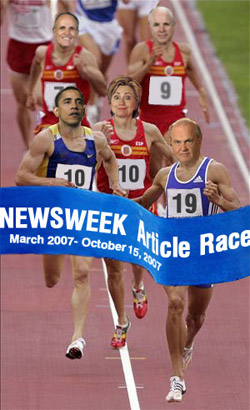
If the number of Newsweek articles were the measure of who will be US President, Fred Thompson has already won.
Even though his campaign only officially started a month ago, on September 5, when he declared his candidacy on the NBC Tonight Show, he has been cast by Newsweek as a serious presidential hopeful in 19 stories, from March 2007 to mid-October 2007 according to our recent study. Hillary and Obama had less coverage, by almost half (10 articles each) during the same time period. Mike Huckabee eked out just one Newsweek report. We further contrasted Thompson’s coverage with other, lesser known, but declared candidates who’ve been running hard in both parties – Dennis Kucinich, say, or Joe Biden, or Bill Richardson – and we were surprised they had gotten zero coverage.
Before delving into our findings, the fundamental ethical principle at stake here needs to be mentioned.Why did Newsweek editors judge Thompson most worthy among all candidates in both parties to receive this favoritism in coverage?
The possible answer lies in the perception, if not the actuality of, a conflict of interest. Newsweek’s editorial love affair with Fred Thompson may be related to Newsweek’s undisclosed “business partnership” with NBC, Thompson’s employer.

After all, our other study shows that Time Magazine, Newsweek’s competitor, only published 4 stories on Thompson while Newsweek published 19 reports of questionable news value. Nowhere in any of Newsweek’s coverage do they disclose that Thompson is an NBC employee and that NBC is their partner and, up until this week, host of their MSNBC/MSN website.
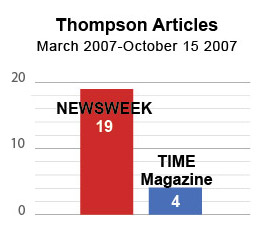
An informed citizenry needs a “comprehensive” and “proportionate” press
Media ethicists Bill Kovach and Tom Rosenstiel, in their book “The Elements of Journalism,” cite as their “eighth principle” of a free press the need for journalists to “keep the news comprehensive and in proportion.”
Informed citizens need comprehensive and proportional coverage to make good voting decisions. And by most informal measures, we’re a grossly uninformed lot. NBC’s Today Show, for example, recently aired a segment in which random people were shown photographs of various “second-tier” candidates. It all made for good television fun when it was revealed that most of the respondents did not know Dennis Kucinich or Sam Brownback from Adam.
Maybe the joke is not on citizens. Maybe the joke is on the mainstream media outlets that have offered such anemic coverage of the majority of candidates.
I’d also like to share the thoughts of one of our readers, “Jama,” who summed up the problem well: “I’ve long been complaining about the media’s declaration of the ‘top tier’ candidates,” Jama wrote. “The candidates who ‘win’ the polls are the ones that the media talks about, but the ones the media talks about are the ones who win the polls… If the major news organizations would only spend more time talking about the ‘second tier’ and ‘no chance in the world’ candidates, then maybe we could have something akin to a fair election. Otherwise, our president is chosen based on mere name recognition.”
In short, people in a democratic society, like Jama, rely on the media for information to shape their political opinions.
Fred Thompson, media icon
Thompson talked with the NY Times recently about his unconventional campaign. A savvy media-veteran, Thompson has circumvented many of the pitfalls of “traditional” campaigning. By delaying the declaration of his candidacy, Thompson was able to avoid campaign finance restrictions and difficult debate questions while continuing to earn commercial income from product endorsements. “Some may be vested in the notion that you can’t get in this late, that I’m trying to just say, ‘Well, they’ve seen me on ‘Law & Order’ and that will carry me to the presidency’” said Thompson. “They just don’t think that is right. I played the hand that I dealt myself, and there are a lot of advantages to that,” he said.
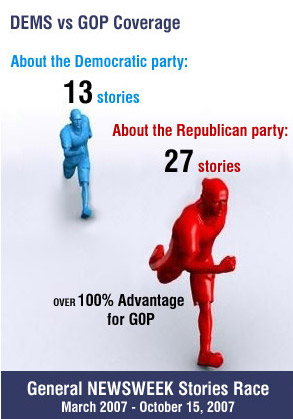
But Thompson is playing with a stacked deck. As we’ve pointed out in several reports, Thompson is a recognizable NBC TV star. He plays DA Arthur Branch on the aforementioned crime drama Law and Order, which NBC touts as “the most successful brand in primetime television” as well as one of “NBC entertainment’s preeminent brands, with its successful spinoffs ‘Law and Order: Special Victims Unit’ and ‘Law and Order: Criminal Intent.” As a result, Thompson is instantly recognizable to millions of the show’s devotees. (In fact, so close are the continuing ties that while Thompson officially left Law and Order at the end of May, his NBC bio reads as if he is still employed there.)
On top of Law and Order name brand recognition, his campaign was launched into the PR stratosphere on Jay Leno’s NBC Tonight Show. Thompson’s appearance, as both an NBC employee and presidential wannabe, was a huge plus for NBC’s cross-promotion of its brands and products. (It seems with the Thompson campaign, NBC is not only getting the positive scoops, but the negative ones, too. The recent announcement by Thompson’s wife, Jeri, that she would be canceling her first public appearance was touted as an NBC news “exclusive.”)
Beyond the advantages earned as a prime-time television celebrity, the extensive coverage he’s received in Newsweek has given him exposure to the magazine’s 3 million plus readers. (Do the math: 3.1 million readers x 19 articles).
From the first mentions of his name in the press as possible candidate in March 2007, Newsweek’s editors treated his non-existent campaign as Grade A political beef. They even assigned his own resident chronicler, Holly Bailey. In covering the Thompson campaign, Bailey has specialized in non-news stories about such things as Thompson’s B movie roles – twice (June 11, 2007 and July 2, 2007, see chart below). She also mentioned his friendship with McCain as a basis for another piece (May 7, 2007). In that story, the critical question posed by Bailey was whether or not McCain would be mad at Thompson, his friend, if he suddenly became a competitor. (To the more pertinent question of how it might affect his presidential supporters and financial backers, McCain replied, “I don’t know.” Pulitzer material, no?)
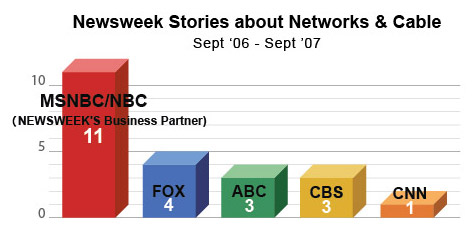
Amid Newsweek’s Thompson love-fest, the tougher stuff was being left to the other outlets. For example, LA Times reporter, Joseph Menn, wrote about a disconcerting radio endorsement Thompson gave to the dubious company, Lifelock (June 9, 2007 and June 12, 2007). The NY Daily News wrote “All-but-declared GOP presidential candidate Fred Thompson is shilling for a company whose co-founder was accused of secretly tapping into people’s bank accounts.” We, too, wrote about it. We even managed to find and publish a copy of the radio spot (quite a feat considering it disappeared from airwaves soon after the news broke). A Thompson representative later said Fred had neglected to vet the company. Maybe he did. But after listening to the ad – and Fred Thompson’s recurrent use of the word “heroes” followed immediately by his own name – it’s hard to imagine Thompson not noticing the exploitive text.
But all this begs the question: Why did Newsweek provide Thompson this volume of disproportionate coverage? After all, Newsweek’s direct competitor, Time Magazine, only published 4 stories on Thompson during the same period in which Newsweek published 19 reports. (Surely Joe Biden, Bill Richardson and Ron Paul all have cars or trucks Holly Bailey can write about.) The imbalance, in fact, goes beyond Fred Thompson. We found that in the period between March and October 15th of 2007, stories about Republican candidates outnumbered those about Democrats by more than 2 to 1. We also observed a similar trend in stories about network and cable companies. Between September 2006 and 2007, there were 11 stories in Newsweek about NBC and MSNBC – the same number published about Fox, CBS, ABC and CNN combined. No disclosures of the MSNBC/MSN/Newsweek connection were included in any of these articles.
Indeed, Newsweek’s editorial entanglements with Fred Thompson may be best understood by looking at Newsweek’s business entanglements with NBC and Microsoft. Last week, Newsweek announced that they were breaking up their website partnership with MSNBC, but pointed out they would still share editorial content “under a multiple-year contract.” Washington Post/Newsweek publisher Greg Osberg was quoted in that article trying to spin his way out of the mess created by the undisclosed MSNBC/Newsweek partnership. “Having separate navigational schemes for Newsweek and MSNBC was a bit confusing for users,” Osberg said. What separate navigation is he referring to?
The problem is that Newsweek did not have a separate site until this week. A close look at the URL address of Newsweek’s former homepage below shows that it was subordinated under MSNBC/MSN’s web site. Even the copyright notice at the bottom of the page stated c 2007 MSNBC.com and c 2007 Microsoft . (Click the image below).
I wrote to Richard Smith, chairman and editor-in-chief of Newsweek to find out what this means. “Do you feel that major, respected news magazines have an obligation to their readership to give all candidates (especially those who have formally declared) at least a measure of coverage?” I wrote. “Does this business partnership (with MSNBC) act as a co-ownership?” and “Should MSNBC-Newsweek have disclosed the conflict of interest that existed between Newsweek and NBC via NBC actor Fred Thompson?” And while Smith’s response arrived 5 minutes later by email (“I am traveling and have forwarded your questions to editor Jon Meacham and publisher Greg Osberg.”), so far, the masterminds behind the MSNBC/Newsweek partnership have declined to answer my questions.
When I point out to people that Newsweek’s web site banner shared a marquee with MSNBC, blank stares and confusion ensue. This quasi-formal arrangement in many ways allows Newsweek and NBC to fly under the radar. No need to swap stock – just create a partnership through content sharing deals. While the Washington Post’s ownership of Newsweek is well disclosed, the Newsweek web site does not include any indication of a “contract” for sharing content with MSNBC. But Newsweek’s clumsy co-branding with NBC created a perceived conflict-of-interest among the Washington Post Company, Fred Thompson, a NBC employee and recipient of NBC royalties, and NBC, which is a continual recipient of Law and Order ratings and advertising profits.
The Washington Post Company and Newsweek signed away their independence when they inked a deal that allowed NBC and Microsoft to lay the branding iron to their flesh.
Blind eye on the Southern guy
The bottom line for the public here is simple: If all media companies share reportage, isn’t the public dis-served by the non-competition?
Unlike broadcast media, there are no regulations mandating that print publications provide Equal Time for all candidates. “The purpose of the Equal Time/Equal Access rules,” according to the Museum of Broadcast, “[is] to prevent broadcast stations from becoming effectively propaganda mouthpieces for particular candidates during election time.” If Newsweek were a television news program, the facts and information in nearly all of their 19 reports on Thompson would not have met the standard of “bono fide news.”
Media pundits may try to justify Newsweek’s Thompson coverage as a result of nascent political “buzz,” but the original buzz was, itself, born of media hype.
Yet, while the FCC’s equal airtime rules may not apply to Newsweek’s coverage, the FCC’s cross-ownership rules, which are intended to limit mergers of print and broadcast ownerships and prevent mega media monopolies. But these rules are again up for review by the FCC Chairman. Just days ago TV Week reported that “Federal Communications Commissioner Michael J. Copps has suggested that the agency is starting to speed up in the pace of its examination of new media-ownership rules… The FCC has been expected to propose any new rules next year.”
Things aren’t looking good, according to John Nichols, Washington correspondent for The Nation, writing for media reform group Free Press. Nichols reports that FCC Chairman Kevin Martin is seeking to rewrite media ownership rules to increase the number of outlets that can be owned by a company in a single market. “This ‘company-town’ scheme . . . would be achieved by lifting current limits on media cross-ownership,” writes Nichols. “With one FCC vote, media billionaires will be able to become media multi-billionaires by controlling the entire communications landscapes of major metropolitan areas — and by extension whole regions and states.”
CheckYourFacts, our sister site, asked Newsweek for comment about their undisclosed partnership with MSN/MSNBC last June. Their HAL-like response: “I have no visibility on this relationship if one exists” was the bizarre answer we reported earlier in the summer. Furthermore, as we pointed out in an earlier report, Bailey made no mention of Thompson’s work as a Washington lobbyist, which included the client, General Electric, owner of NBC. This is salient information in light of both Thompson’s employment by, and Newsweek’s business relationship with, NBC.
The numbers don’t lie. The volume of stories on Thompson – and the lack of stories on other candidates – is prima facie evidence of favoritism in coverage and demands a serious response from Newsweek.
NEWSWEEK STATISTICS
| • Earliest Story on Thompson, April 2007 |
| • 19 Stories about Thompson since March 2007 |
| • 12 Stories about Thompson written by Holly Bailey |
| • 6 Stories about Thompson in September 2007 |
NEWSWEEK THOMPSON STORIES
Mar ’07-Oct 15 ’07
| 1 | April 9, 2007 | Campaign 2008: Meet the ‘Law & Order’ Candidate | by |
| 2 | April 23, 2007 | Campaign 2008: The ‘Health’ Primary | by |
| 3 | May 7, 2007 | Keeping It Between Friends | by |
| 4 | May 28, 2007 | The Sign Of the Red Truck | by |
| 5 | June 04, 2007 | In Search of a Political Savior | by Eve Conant; With Jonathan Darman |
| 6 | June 11, 2007 | 08’s Other TV Star | by |
| 7 | June 11, 2007 | Thompson and the ‘Laziness’ Issue | by |
| 8 | June 18, 2007 | Of Tulips and Fred Thompson | by George F. Will |
| 9 | June 25, 2007 | Away From the Cameras | by ; With Eve Conant |
| 10 | July 2, 2007 | The Reel Problem | by |
| 11 | August 13, 2007 | Not-So-Hidden Power | by |
| 12 | September 10, 2007 | The Editor’s Desk | by Jon Meacham |
| 13 | September 10, 2007 | Grin and Bear It; COVER STORY | by ; With Richard Wolffe, Eleanor Clift, Eve Conant and Mary Carmichael |
| 14 | September 17, 2007 | Bad Casting Decisions | by |
| 15 | September 17, 2007 | The ‘Law & Order’ Cabinet | No Byline |
| 16 | September 17, 2007 | In Search Of a GOP St. George | by Howard Fineman |
| 17 | September 24, 2007 | Thompson’s Slow Start | by |
| 18 | October 1, 2007 | The Miracle Workers | by Eve Conant |
| 19 | October 9, 2007 | How Fred Thompson Fared | by Howard Fineman |

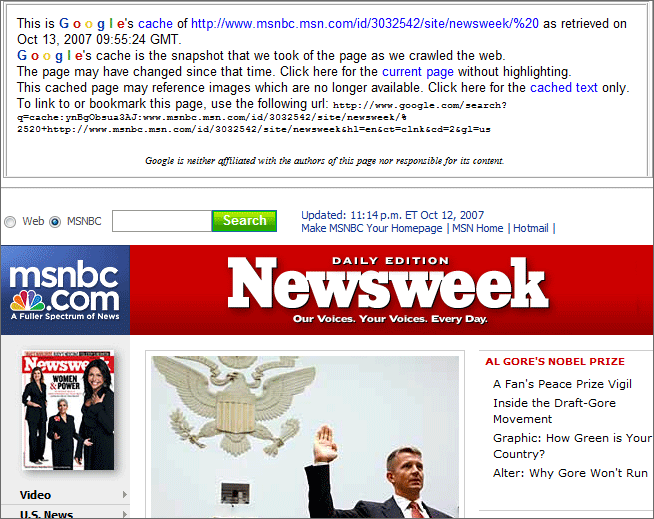


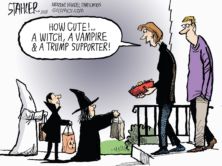

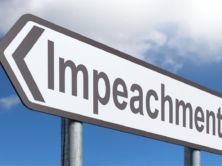
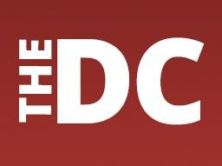
Let us know what you think of the alleged FCC efforts to cut back cross ownership restrictions?
Give us your feedback and suggestions. Thank you for your visit.
I was hoping to come to your website to find some useful and objective information. Now I can take you off my list as yet another propganda machine for the useful idiots you play to.
You slam Newsweek as “favoring” someone simply by the total number of articles, ignoring content or volume. That’s real analysis! Give me a break.
Dear "Your Useful Idiots", Thanks for your comment. The fact of 19 articles for Thompson and 0 articles for 10 viable GOP and DEMs candidates, we felt was significant and extreme no matter the length or content. However, with that said, we still provided all 19 articles and mentioned they are lite on news worthiness. SJ Readers have the opportunity to judge for themselves.
I am sure the 11 candidates that received NO coverage in Newsweek would have appreciated even one article, of any length or content, during the same time period Thompson inexplicably got 19 articles. Alas, they did not have that opportunity.
Frankly speaking, giving Thompson 19 articles, most of which were done before he was a declared candidate, while giving other viable, declared candidates many less seems even on its face, unfair.
We try to use facts (counts of articles) as a objective means to measure bias.